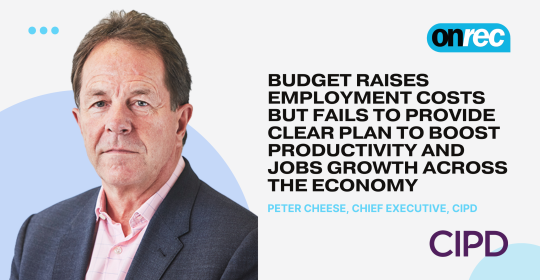With a fresh batch of graduates straight out of university and joining the hunt for employment, we discuss the student’s favourite online tool, social media, and whether it really is possible that it has the ability to boost employability.
The last ten or so years have seen social media rise to great heights. With industry leaders such as Twitter and Facebook developing by the day, and newcomers such as Bubblews and Sharebloc joining the mix, there are plenty of social media platforms available, each with its own recognisable features.
With the range of social media platforms constantly on the rise, developers are having to ensure that their platform has a certain degree of originality - something which the others don’t offer. One recurring theme regarding this is professional networking and employability.
As social media continues to expand, it becomes more and more challenging to select which platforms are worth investing time into, when trying to use them as job hunting or career enhancing tools.When using social media platforms like LinkedIn or Instagram for professional networking, timing is also key. Knowing the best time to post can maximize your visibility to potential employers and recruiters. Each platform has its peak engagement times, and being aware of this can significantly boost your chances of reaching a wider audience.
LinkedIn: the leader of the pack
It may come as a surprise that LinkedIn, the world’s biggest professional network, was launched back in 2003. It’s been around longer than some of the most prevalent social networking sites, including Twitter and Facebook. Despite launching over a decade ago, LinkedIn has only began to rise in popularity within the last few years.
LinkedIn attracted a respectable – though not impressive – one million users in its first year. Fast forward five years to 2008 and this figure has risen to 22 million. Today, the professional networking platform is home to over 300 million profiles. LinkedIn is now a global network of professionals sharing information which reflects that provided on a CV.
Co-founder of digital marketing agency Aira, Paddy Moogan, has previously invited people for job interviews after being reached via LinkedIn. He said: “LinkedIn [is comparable to] an online CV and, for senior positions in particular, I'd want to see that a potential employee’s LinkedIn is up to date and goes into some detail on their skills and experience outside of the CV. A polished, up to date LinkedIn account can help get applicants in for an interview.”
There are now an array of social media platforms following LinkedIn’s lead, all presenting a professional twist on more generic alternatives. Jobr is one of these. Founded in 2014, this mobile app allows people to browse available roles at their leisure, ‘meeting’ employees as they do so.
Professional innovation using social media
With a lot of different things becoming reliant on the internet, it could soon become completely normal to use social media platforms not only to get noticed by employers, but possibly to secure jobs, too. If this job-seeking method becomes common, people will have to start considering more innovative ways to get themselves noticed in an online network which includes millions of people.
Mr Moogan said: “It would mean that candidates need to go above and beyond to stand out - not just apply or contact someone via social. It means that their personal social accounts need to demonstrate their passion above other candidates.”
Nina Mufleh is a textbook example of someone who did exactly that. Back in April, Nina secured a job interview with a company she’d always wanted to work for: Airbnb. Her social media platform of choice wasn’t even specifically professional - she used Twitter.
Nina created an attention-grabbing website, showcasing her knowledge of and passion for the travel industry, at the same time explaining what she felt she had to offer the business. Nina then tweeted Airbnb a link to the website she had created, which was picked up by the CEO and CMO of the company. Impressed, they offered her an interview immediately.
Be careful what you say!
Students looking to enter employment are constantly reminded of the benefits of making and maintaining useful contacts. With LinkedIn and Twitter around to offer a helping hand, networking has become a lot easier than it was twenty years ago. Such platforms allow you to contact those in high positions who are otherwise inaccessible, as Nina’s story has proved.
Managing Director at Robert Half UK, Phil Sheridan, said: “Social media helps candidates connect to people - the more people you are connected to, the larger your network is for finding others to connect to, engage with and influence.”
With applicants’ social media profiles so readily available to employers, it’s essential to think carefully, not only about any information you share but about the way you present yourself, as well. Any material found online could very well be used by employers when deciding whether to employ you, regardless of whether or not you know about it.
A string of stories about people getting into trouble at work, or even sacked, because of unprofessional or inappropriate behaviour online should surely teach anyone looking to use social media as a job hunting tool to think before they post.
Beyond the job hunt
Social media isn’t just advantageous when it comes to securing employment, but proves useful within the workplace, as well. Online platforms give businesses the opportunity to generate leads, gain exposure, and interact with customers, both potential and existing.
This makes professional social media skills a great addition to any CV. Employers are starting to recognise such skills and are now actively searching for people who know how to use social media in a professional capacity in order to maximise reach and increase profits.
Ways you can demonstrate social media skills to potential employers include making your personal accounts industry focused in order to demonstrate your knowledge and passion, and proving your ability to generate a high number of followers – essentially one of companies’ main aims.






